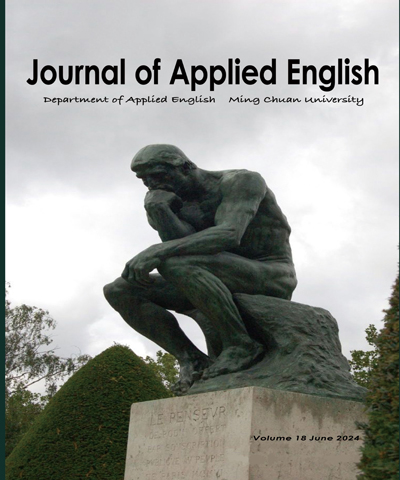
應用英語期刊/Journal of Applied English
銘傳大學應用英語學系所,正常發行
選擇卷期
- 期刊
In view of the need for cross cultural adjustment (CCA) by expatriates in the era of globalization, the current study aims to investigate factors contributing to such adjustment. More specifically, the concept of vision was included for investigation in the context of missionary expatriates, with the purpose of looking for the source factor for cross cultural adjustment. As a result, a model was hypothesized so that the factor of vision not only indirectly contributes to CCA through English learning motivation and then willingness to communicate, but also strongly predicts CCA directly. The structural equation modeling procedure was employed to test the model. The results indicated that the model has a goodness of fit to two sets of data, experienced expatriates (N = 200, with χ2/df =1.920, NFI = 0.876, TLI = 0.926, CFI = 0.936, RMSEA = 0.068) and a larger pool including both trainees and the experienced individuals (N = 382, χ2 = 445.196, χ2/df = 2.079, NFI = 0.914, TLI = 0.946, CFI = 0.953, RMSEA = 0.053). The study findings suggest the need for expatriate training for missionary purposes in order to enhance both intrinsic and extrinsic motivation for language learning, to provide opportunities for cross-cultural communication, and to provide inspiration toward a vision of the future of missionary work.
- 期刊
Television has remained the dominant platform for media consumption for more than ninety years. On average, Americans watch television for more than five hours per day (Nielsen Media, 2016). Moreover, television series are actually easier to access worldwide than ever before, using new media platforms such as Amazon, Hulu, Netflix, and TV.com (Koblin, 2016). Characters now represent a wider range of ethnic backgrounds, which can provide audiences with more opportunities to gain insight into a variety of lifestyles and cultures. However, if those programs include characters or situations based on ethnic stereotypes, they paradoxically corroborate those overgeneralizations, unwittingly providing evidence for the audience to identify them as facts. American television media's narrow vision of Asian culture has generally included all of the traditional stock characters: "model minorities," "dragon ladies," "lotus blossoms," and "tiger moms," as well as displays of extreme conservatism and superstition, male emasculation, and the threat of "yellow peril." In contrast, Fresh Off the Boat (2015), based on a memoir written by American-born Taiwanese Eddie Huang, has been highly praised as a more realistic representation of the Asian-American family. However, little research has analyzed how much this television series actually departs from Asian stereotypes and to what extent it helps to perpetuate them. Moreover, there has not been a comprehensive approach to identifying specific examples of both the supported ones and the dispellers. This study analyzed the plot lines and characters in Season 1 of Fresh Off the Boat to investigate both its successes and shortcomings with respect to dispelling Asian stereotypes in American media.
- 期刊
The study aims to understand to what extent and how has English become a semiotic resource in Taiwan by examining the code-mixing reader's comments in two major newspapers (Liberty Times and United Daily) from 1995 to 2015. A corpus consisted of a total of 88,952 comments, which include over 53 million tokens, was analyzed to find out how frequently and the ways the authors use English letters and words in their Chinese texts. The results show that English has been a steady linguistic resource as it accounts for approximately 1% of total tokens in the Liberty Times and 0.4% in the United Daily, in which a sharp increase in English use was spotted after 2013. The most common type of English used is normal English words, suggesting that most readers used English as an external source of reference. The frequent appearances of product and brand names in English imply that businesses increasingly adopt English directly to take advantages of English's symbolic power. Abbreviations of proper nouns are almost as common, though a few terms such as APEC (Asia-Pacific Economic Cooperation), WTO (World Trade Organization), and SARS (Severe Acute Respiratory Syndrome) account for a significant portion. The findings suggest that the use of English as a local semiotic resource has been fragmented, dynamic, and unstable.

